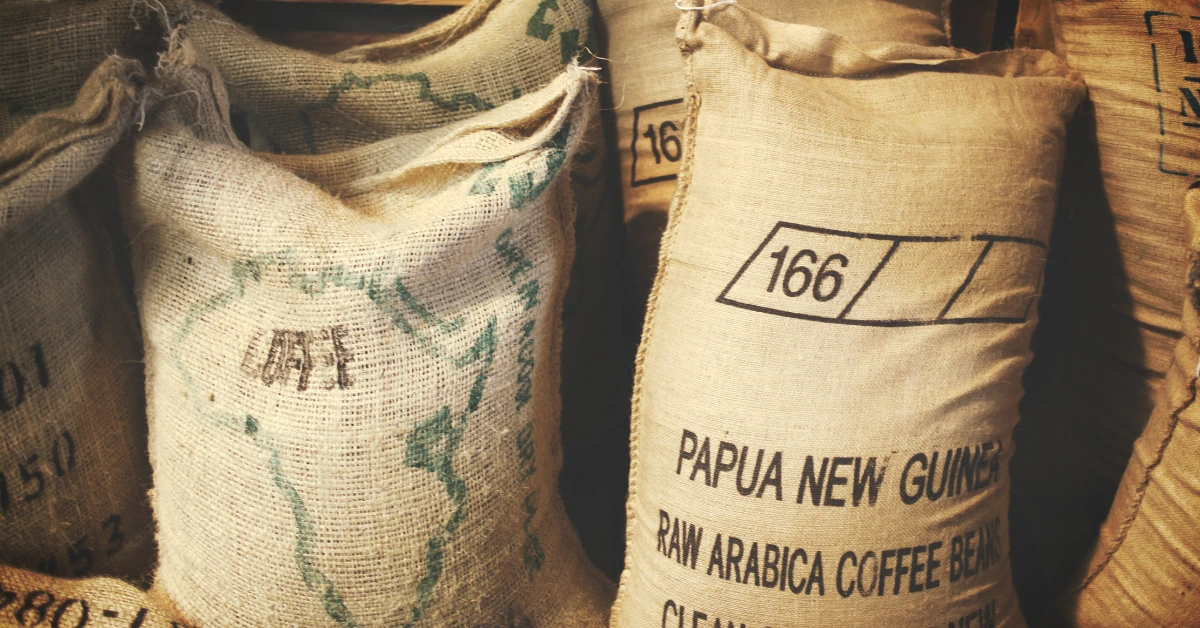
We all know, there are many varieties of coffee beans according to their taste and origin. Have you heard of Yemenia Coffee Beans? You can understand by the name that These beans are grown in Yemen. Yemen is one of the very first places where coffee cultivation was introduced. So, Yemenia coffee beans hold the ancient history of flavorful coffee.
Yemenia coffee beans are renowned for their unique flavor. It can also give you the vibe of dried fruits, chocolate, spices and wine. Though it has uniqueness, it is kind of rare. This rarity makes the Yemenia coffee beans expensive compared to other beans. Some of the most preferred types include Mocha Matari, Mocha Sanani, Mocha Ismaili, Mocha Raimi etc. Let’s dive deep to know more about these coffee beans.
Origin of Yemenia Coffee Beans
You already know, the Yemenia coffee beans originated in Yemen. Let’s go through some specific information to understand the origin.

| Aspects | Brief Descriptions |
| Name | Yemenia coffee beans |
| Type | Unique lineage of Arabica coffee but a distinct |
| Place of Discovery | Yemen |
| Research | A collaborative effort by World Coffee Research and Qima Coffee |
| Flavor | Unique flavors and characteristics not found in other Arabica lineages |
| Genetic Profile | Distinct from all the known Arabica coffee varieties |
| Historical Roots | Traces back to ancient coffee trees in Yemen |
| Highlights | Premium quality |
Characteristics or Features of Yemenia Coffee Beans
Do you know why the Yemenia coffee beans are so special? People from all over the world look for these beans as they are rare. There must be some speciality that coffee lovers want to get the Yemenia coffee beans. Some special features make them distinct from other coffee beans. Check out the following table to learn the characteristics or features of Yemenia coffee beans.

| Characteristics or Features | Description |
| Origin | Yemen |
| Flavor Profile | Unique flavor includes a vibe of fruit, floral, wine-like qualities |
| Processing Method | Traditionally sun-dried
(dry or natural processing) |
| Growing Altitude | Grown on mountainsides,
Cultivated in terraces (like steps) |
| Growing Regions | In different regions in Yemen,
Each offers unique flavors |
| Bean Color | Vary from green to yellowish ( depends on the processing) |
| Demand | High demand in specialty markets |
| Supply | Limited supply (due to Yemen’s landscape type and small-scale farming) |
| Harvest Period | Between November and December |
| Economic Impact | Premium prices |
| Roasting Recommendations | Medium to light roast to preserve the unique flavor |
| Preserving Area | Genetic diversity of coffee |
Recipe for Coffee with Yemenia Coffee Beans
Suppose, you have collected the flavorful, expensive Yemenia coffee beans. But you don’t know how to make coffee with these beans. Isn’t it a great dilemma? Let’s solve it in a few easy steps.
All you need for this coffee is:
- Yemenia coffee beans, and
- Water
Steps to Make Yemeni Coffee
Choose fresh beans and grind them well

First of all, buy fresh Yemenia coffee beans and then grind them. This will give you the fresh flavor of the coffee. You can adjust the grinding size according to the brewing method. In most cases, the medium size is preferable.
Get a perfect coffee-to-water ratio
Get filtered water and make sure the temperature is between 195°F to 205°F (90°C to 96°C). The ratio of your coffee to water should be 2 tablespoons of coffee for every 6 ounces of water.
Choose a brewing method
Choose any brewing method you like. But to hold the flavors of Yemenia coffee beans, you can go for the French press method, Pour-over method, AeroPress method etc.
Ensure perfect brewing time
You have to consider the brewing time according to your chosen method. Check the recommended brewing time below.
| Brewing Method | Preferred Brewing Time |
| Pour Over Method | 2 to 4 minutes |
| French Press Method | 4 to 5 minutes |
| AeroPress Method | 1 to 2 minutes |
| Siphon Method | 1 to 2 minutes for boiling,
Another 1 to 2 minutes for drawing down. |
Taste and adjust
Taste your freshly brewed Yemeni coffee. If the coffee is too strong or weak, adjust the ratio of coffee beans and water. Pour your coffee into a cup and enjoy the aroma of Yemen.
Are Yemenia Coffee Beans Good or Bad?
It is totally your perception whether you like Yemenia coffee beans or not, whether they are good or bad. But for most coffee lovers these beans are a good option for aromatic coffee. Do you know why these beans are grabbing attention? Let’s briefly discuss some reasons behind this.

Unique Flavor Profile
As you know, Yemenia coffee beans have a uniqueness in their flavor. That’s why many people like it and many more want to know about it and try it. The fruity, floral and wine-like vibe attracts many coffee lovers.
Genetic Distinction
These coffee beans are distinct from Arabica lineages. The flavors are so unique that you will not find them in any other coffee beans. So, you can experience the diversity by having this coffee.
Historical and Cultural Value
The Yemenia coffee beans hold the historical and cultural value of their origin, Yemen. This cultural value and historical significance pull many people towards this coffee.
Recognition
These beans have gathered many positive feedbacks and recognition from experts and coffee graders. So, this is obviously a matter of showcasing the high quality of the beans. Though the liking or disliking varies according to a person’s taste, Yemeni coffee beans are largely praised to be a good choice.
Why Are Yemenia Coffee Beans Expensive?
Suppose, you want to buy a pair of branded shoes from a limited exclusive collection. Will it be expensive or cheap? Obviously, you need to pay more to get the exclusive pair. Likewise, Yemenia beans tend to be expensive for some particular reasons. Here are some of the reasons for being expensive:

Limited Supply
Yemenia beans are produced on a small scale because they require special growing conditions. In Yemen’s mountainous area, these coffee beans are grown. So, it has limited supply which makes it costly.
Cultivation Complexity
These beans are cultivated in mountains and the process is hard. Mainly this cultivation is labor-intensive and thus, the cost increases.
Traditional Processing
The Yemenia coffee beans undergo traditional processing methods. It includes sun-drying the coffee cherries and traditional bean extraction. This processing also makes the beans costly.
Challenges in Exporting
As Yemen experiences civil conflict, the exporting process becomes challenging. With limited infrastructure, exporting to other countries leads to higher costs.
Uniqueness and Demand in Specialty Markets
The unique characteristics of the beans add premium value to them. Moreover, as many coffee enthusiasts and coffee graders show interest in this Yemeni coffee, it increases the demand in the specialty markets. For high demand, the overall price also increased. So, these are the reasons for the Yemenia beans being expensive.
Our Recommendations
Many brands are offering Yemenia beans. Don’t get confused about which one to choose. Here are our recommendations for the top types of Yemenia Coffee Beans and brands that offer these beans or grounds.
Recommendations for Top 6 Yemenia Coffee Beans (Types)
| Types of Beans | Flavor Profile |
| Mocha Matari | Wine-like acidity,
Full body (weight or thickness), With chocolate overtones. |
| Mocha Sanani | Earthy flavors,
Medium to full body, With mild acidity. |
| Mocha Ismaili | Deep, wine-like flavors,
More intense and layered coffee. |
| Mocha Harazi | Bright acidity,
Full body, With complex flavors. |
| Mocha Raimi | Flavors of dried fruits,
With wine-like acidity. |
| Mocha Haimi | Balanced flavor,
With distinct acidity. |
Recommendations for Top 5 Brands or Roasters Offering Yemenia Coffee Beans
| Brand / Company | Description |
| Port of Mokha | Dedicated to reviving Yemen’s coffee legacy,
Offers premium Yemenia beans. |
| Blue Bottle Coffee | Well-respected specialty roaster,
Occasionally offers Yemenia beans. |
| Stumptown Coffee Roasters | Known specialty roaster,
Source Yemenia beans from time to time. |
| Tim Wendelboe | Emphasizes direct sourcing and quality,
Features Yemeni coffee. |
| Qima Coffee | Focuses on Yemeni coffee,
Supports local farmers, Emphasizes quality. |
Conclusion
From this discussion, you got to know about Yemen’s most aromatic and flavorful coffee. The Yemenia coffee beans are full of flavors and distinctness with the deep cultural value of Yemen. Though these are expensive, they are still worth buying and tasting to explore their uniqueness. It can assure you of the premium quality. Moreover, you can easily make coffee from these beans by following the easy steps we’ve discussed earlier. So, it will be a good discussion to try these beans and experience the blend of taste of ancient culture.

I am Mojoon, a certified and award-winning barista by choice, with 7 years of experience in the field. I have served and trained coffee shop baristas worldwide. I worked at Krispy Kreme for an extended period, and now I aim to help regular people brew coffee like me. I pursue this job with my passion for writing and also provide one-on-one coaching for newly minted baristas.